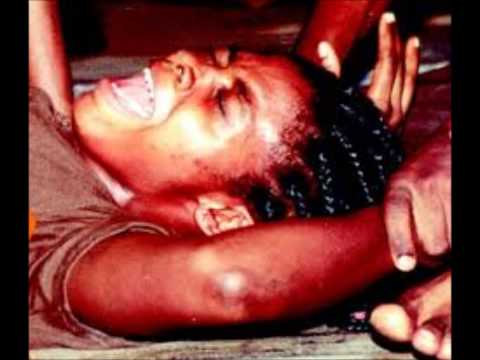
Statement by the United Nations in Sierra Leone on the International Day of Zero Tolerance for Female Genital Mutilation
Female genital mutilation denies women and girls their dignity, endangers their health, and causes needless pain and suffering, with consequences that endure for a lifetime and can even be fatal. Sustainable development demands full human rights for all women and girls.
United Nations Secretary-General António Guterres

Globally, more than 200 million girls and women in 30 countries have been subjected to female genital mutilation or cutting (FGM/C). Sierra Leone has one of the highest rates of FGM/C worldwide, affecting almost 90% of women aged 15-49 years.
As Sierra Leone joins the world in commemorating the International Day of Zero Tolerance for Female Genital Mutilation, the United Nations in Sierra Leone reiterates that FGM/C constitutes a form of violence against girls and women which must be stopped, and replaced with practices that are not harmful.
 FGM/C violates girls´ and women´s right to health, security, physical and psychological integrity, their right to be free from cruel, inhuman or degrading treatment, and, when the procedure results in death, their right to life. It does not have any health benefits. On the contrary, long-term consequences include complications during childbirth, problems urinating, anemia, infections, infertility, formation of cysts and abscesses, painful sexual intercourse, hypersensitivity of the genital area and increased risk of HIV.
FGM/C violates girls´ and women´s right to health, security, physical and psychological integrity, their right to be free from cruel, inhuman or degrading treatment, and, when the procedure results in death, their right to life. It does not have any health benefits. On the contrary, long-term consequences include complications during childbirth, problems urinating, anemia, infections, infertility, formation of cysts and abscesses, painful sexual intercourse, hypersensitivity of the genital area and increased risk of HIV.
The Government of Sierra Leone has signed up to international commitments to end FGM/C, such as a 2012 UN General Assembly Resolution to ban the practice worldwide, and the Sustainable Development Goals.
The UN recognises and appreciates cultural values, norms and practices that promote human rights and the wellbeing of people. Sierra Leonean women and girls must be able to exercise their cultural rights.
We support a national dialogue on alternative rites of passage that do not entail female genital cutting and its harmful consequences for women and girls.
The UN acknowledges and congratulates the Government of Sierra Leone for its continuous efforts to reduce the prevalence of FGM/C in the country and asks that it continues to work systematically towards total abandonment of the practice, in accordance with the participation of Sierra Leone in the global commitments mentioned above.
Over several years the Government, supported by the UN, has invested in drawing up a National Strategy to reduce FGM/C which can help translate the country’s international commitments into practical action. The draft strategy has been written after extensive consultations with Government, Paramount Chiefs, religious leaders, Soweis, civil society groups, and NGOs.
In line with the Government’s efforts towards upholding all the human rights of women, men, boys and girls in Sierra Leone, the Government is urged speedily to finalise the draft national strategy and implement it, with a view to facilitating public education and community engagement and buy-in to end the practice.
The United Nations in Sierra Leone stands ready to support this endeavour and looks forward to a continued partnership.
_________________________________
Read more about the 2017 Theme: “Building a solid and interactive bridge between Africa and the world to accelerate ending FGM by 2030” at UN.org



